A selection of books and chapters written by or in collaboration with Jillian C. York
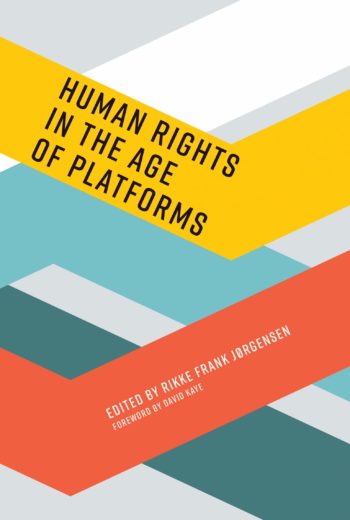
Human Rights in the Age of Platforms
From my chapter: “As we head toward a more complex future, it is necessary that approaches to content control—both soft and hard—recognize that moderation is a major function of successful social media platforms, and that efforts from human beings will be essential, likely in cooperation with algorithms. Both human and algorithmic models of content moderation present challenges but with expert oversight can be improved to limit the effects of bias.
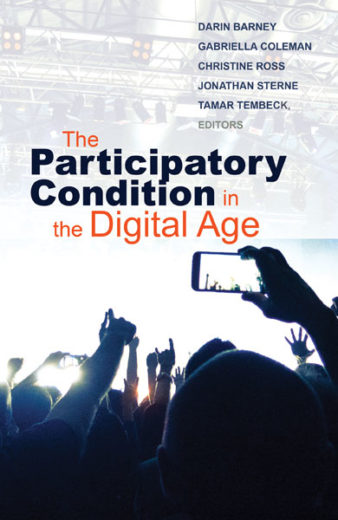
The Participatory Condition in the Digital Age
Structured along four axes investigating the relations between participation and politics, surveillance, openness, and aesthetics, The Participatory Condition in the Digital Age comprises fifteen essays that explore the promises, possibilities, and failures of contemporary participatory media practices. This book represents the most comprehensive and transdisciplinary endeavor to date to examine the nature, place, and value of participation in the digital age.
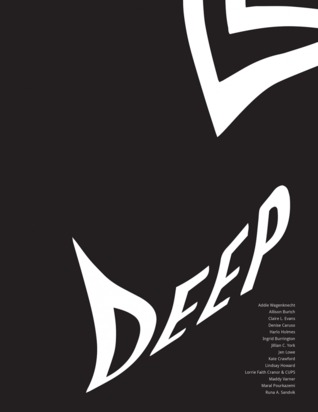
Deep Lab – The Book
During the second week of December 2014, the Deep Lab participants—a group of internationally acclaimed new-media artists, information designers, data scientists, software engineers, hackers, writers, journalists and theoreticians—gathered to engage in critical assessments of contemporary digital culture. They worked collaboratively at the STUDIO in an accelerated pressure project, blending aspects of a hackathon, charrette, and a micro-conference.
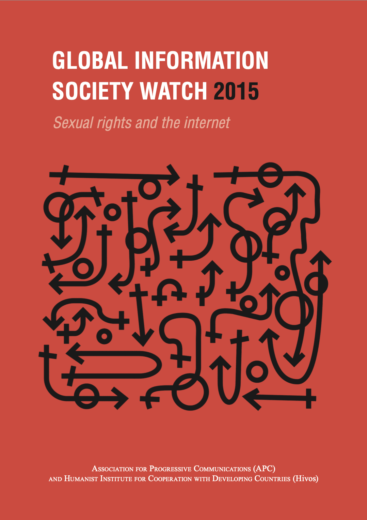
Global Information Society Watch 2015: Sexual Rights and the Internet
From my chapter: “As the online “public sphere” becomes increasingly privatised – with companies like those mentioned earlier creating and enforcing their own rules above the law – access to sexual health information will be increasingly under threat, unless significant policy changes are made.”
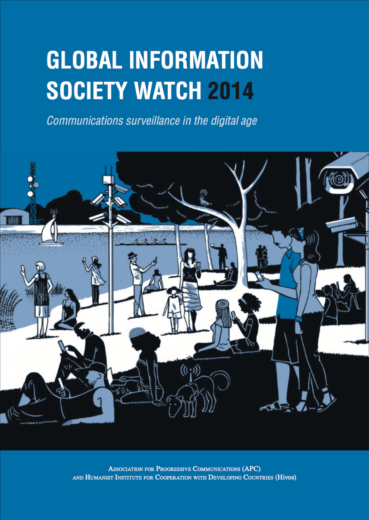
Global Information Society Watch 2014: Communications Surveillance in the Digital Age
As awareness of mass surveillance increases among the populace, it follows that new tactics for opposing it will arise. Given the complex nature of digital spying and the interlinked set of rights it affects, this is imperative. Ending mass surveillance requires consideration not only of its effect on privacy, but its impact on expression and association as well.
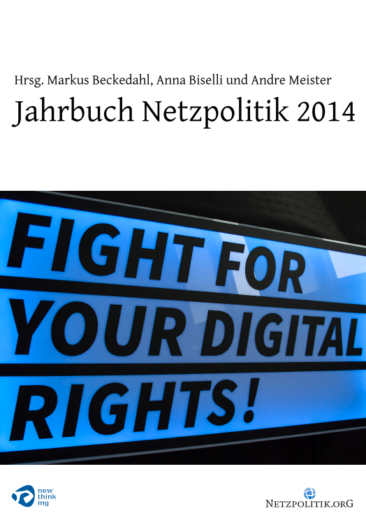
Jahrbuch Netzpolitik 2014
From my chapter:
The demographic makeup of [social media] corporations should not go unnoticed. These are the companies that build the tools and make the rules about what we can and cannot say or do online. The people making those rules have been indoctrinated by an outlook specific to one culture, and are now—unwittingly or not—exporting that outlook around the world.
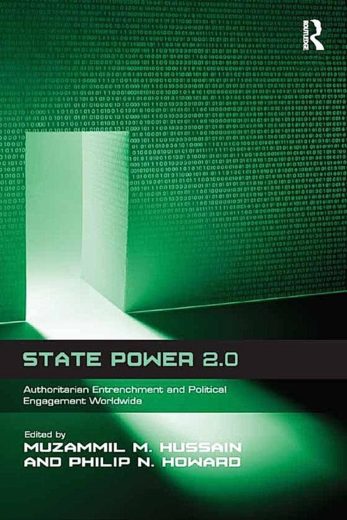
State Power 2.0: Authoritarian Entrenchment and Political Engagement Worldwide
From my chapter, co-authored with Katherine Maher:
Much like the early Internet, these digital spaces had the allure of the unregulated: free of censorship and offering the appearance of anonymity. Tunisians took to blogging and other self-publishing forums to express dissidence on a broad range of sensitive cultural and political issues, countering official state narratives and offering a range of opinions rarely evident in the traditional press. As expression in these spaces grew increasingly critical of the Ben Ali regime, the government responded: Tunisia, the first Arab country to connect to the Internet also became the first to utilize the Internet for repression.
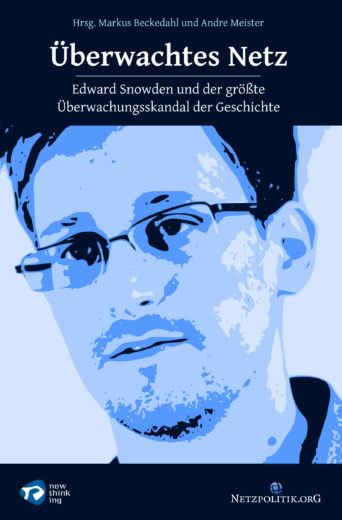
Überwachtes Netz
From my chapter:
…there are those who will argue that while surveillance is burdensome, it is far less a priority than other social ills such as poverty, or in the United States, the issue of healthcare. Without the freedom to speak out about such needs, however, all other struggles become more difficult.
As Special Rapporteur to the United Nations on freedom of expression and opinion Frank LaRue recently wrote, “Undue interference with individuals’ privacy can both directly and indirectly limit the free development and exchange of ideas … An infringement upon one right can be both the cause and consequence of an infringement upon the other.” Without freedom of speech, all forms of activism, of challenging state power, come under threat. And pervasive surveillance absolutely threatens our ability to speak freely by creating a climate of fear.
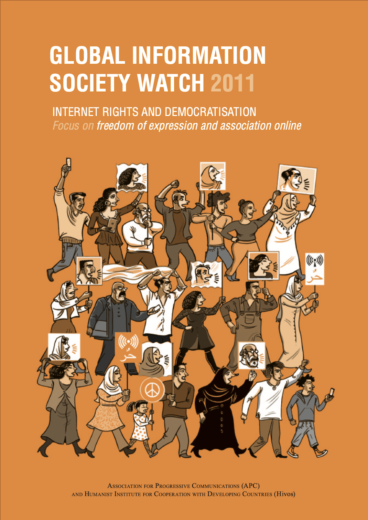
Global Information Society Watch 2011 Update
From my introduction:
States have always placed restrictions on content for the purposes of national security, but never before has the determination of what constitutes a national security threat been left to minor agencies or private regulators, creating greater room for error and corruption . Furthermore, when “national security” becomes a catch-all to justify the censorship of anti-nationalist activities or social movements, the resulting effect is often overly restrictive.
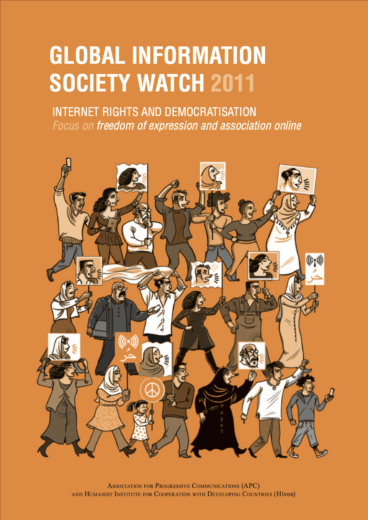
Global Information Society Watch 2011
From my introduction:
Early visionaries imagined the internet as a borderless world where the rule of law and the norms of the so-called physical world did not apply. Free expression and free association were envisioned as entitlements, a feature of cyberspace rather than rights to be asserted.
These early conceptions quickly gave way to the realisation that, just as the internet was embraced by people, so would it be controlled: by corporations, by policy makers, by governments, the latter of which began asserting control over the internet early on, enacting borders to cyberspace and preventing the free flow of information, not unlike the physical borders that prevent free movement between nations.
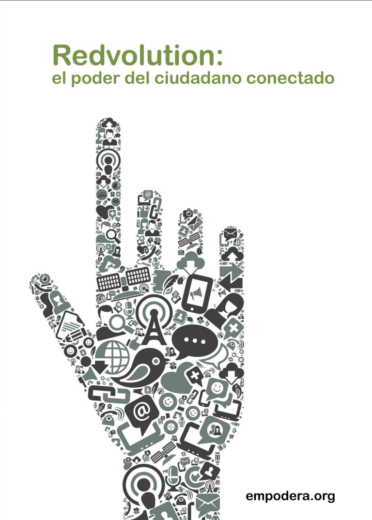
Redvolution: el poder del ciudadano conectado
From my interview:
For me, empowerment is having a voice, and the Internet—connectedness, really—enables that. It’s been amazing over the past year, not only in the Arab world but in the US and other regions, to see individuals taking to social media (and by extension, to the streets) to fight for their rights…and many of the rights they’re fighting for have online implications — such as free speech or the freedom to assemble.
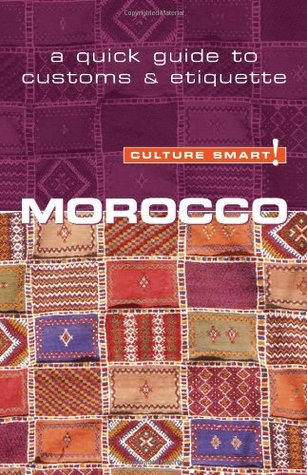
Culture Smart: Morocco: a quick guide to customs and etiquettes
Morocco is a land of spectacular scenery, with a rich history, and heady with tantalizing scents and colorful sights … Today it is a country in transition—a unique blend of Arab, African, and European ways of life. The teeming cities have an air of sophistication and joie de vivre, but life in rural areas has stayed much the same. And while the cities are highly westernized, tradition and religion still play a vital role in the everyday life of most people. With rapid change came problems. Lack of opportunity and high unemployment resulted in a “brain drain” as educated Moroccans made their way abroad, and a fundamentalist interpretation of Islam started gaining ground among the urban poor. Even so, as technology becomes widespread and the world shrinks further, Morocco today is coming into its own.
One reply on “Books”
[…] I found interviewing people of colour who had worked at Facebook and YouTube, for my latest book Silicon Values: The Future of Free Speech Under Surveillance Capitalism, is that a lot of them felt as though they were tokenized in the decision-making process,” […]